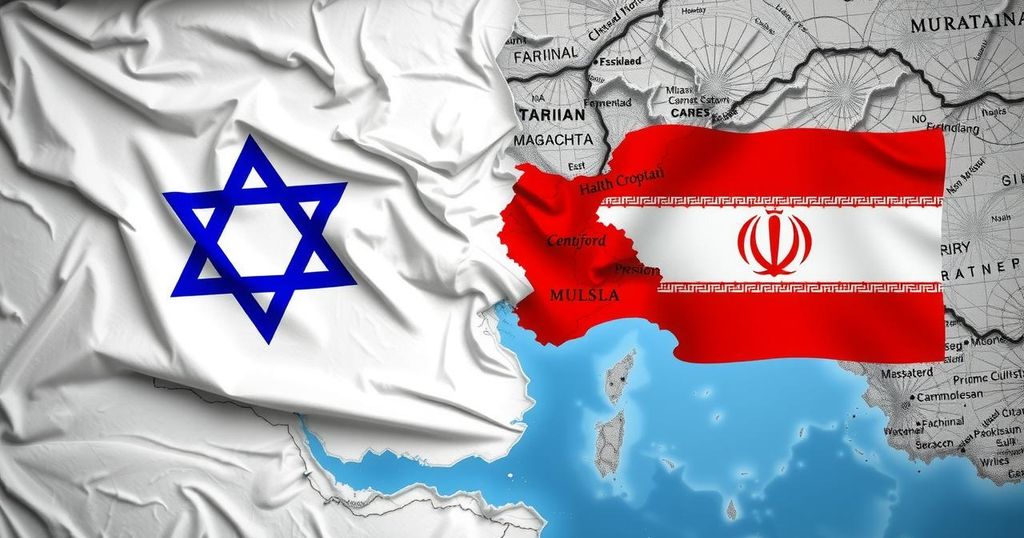Israel is facing persistent missile and drone attacks from the Iran-backed Houthis in Yemen, which complicates military responses due to Yemen’s closed status and difficult terrain. Despite Israeli retaliatory strikes, the Houthis remain resolute due to Iran’s substantial military and strategic support. Effective countermeasures must include addressing Iranian influence to diminish the Houthis’ capabilities and threats to global security.
The situation Israel faces with Iran-backed Houthi rebels in Yemen has intensified, leading to a series of missile and drone assaults directed at Israeli territory. Despite Israel’s strong retaliatory measures targeting significant infrastructures, the Houthis persist undeterred, largely due to substantial Iranian backing. The geographical challenges of Yemen, characterized by its closed status and rugged terrain, complicate military intervention. Therefore, addressing the Iranian involvement is crucial to mitigate the Houthi threat effectively.
The Houthis, also known as Ansar Allah, have escalated their operations in the Bab al-Mandab Strait, extensively attacking commercial vessels and disrupting global trade routes, including the Suez Canal, prompting some shipping companies to halt operations in the area. The US and international coalitions have attempted to neutralize this threat through initiatives like Operation Prosperity Guardian, yet these efforts have proven largely ineffective thus far.
Israel’s confrontations with the Houthis diverge from its strategies against Hamas and Hezbollah, as the unique conditions in Yemen hinder intelligence gathering and direct military action. The Houthis have established a deep integration into local communities and utilize sophisticated intelligence networks, complicating any counter-operations. Their resilient defense mechanisms, fortified by Iran’s military assistance, continue to sustain their operational capabilities despite ongoing military efforts against them.
Iran’s extensive support program has been transformative for the Houthis since 2014, when they were integrated into Iran’s Axis of Resistance. This relationship has facilitated the transfer of advanced weaponry, including missiles capable of targeting regional adversaries. Furthermore, the Iranian Revolutionary Guard Corps has provided both critical training and intelligence support, enhancing the Houthis’ operational capacity significantly.
The Houthis’ recent missile attacks on Israel utilize sophisticated systems that they could not have developed without Iranian help. Reports indicate that training has equipped them with advanced military operational skills, facilitating complex attacks on both military and civilian targets. As a result, Israel’s efforts to respond through direct military action against the Houthis may remain ineffective in the long term unless there is a concerted initiative aimed at dismantling Iran’s influence.
In conclusion, the ongoing conflict in Yemen involving the Houthis, backed by Iran, presents considerable operational challenges for Israel. Recommendations for addressing this threat include targeting Iran directly to diminish their capacity to support the Houthis. Without addressing the Iranian influence, the Houthis will likely continue their aggressive campaigns, undermining both regional and global security.
The article discusses the increasing missile and drone assaults that Israel faces from the Houthi rebels in Yemen, who are supported by Iran. It explores the challenges of dealing with the Houthis in Yemen due to their geographical advantage, community integration, and sophisticated intelligence capabilities while emphasizing the critical role Iran plays in enhancing their military effectiveness. The historical context of the Houthis’ armament and training provided by Iran highlights the need for Israel to adopt a broader strategic approach to address this persistent threat.
The conflict involving Houthi rebels and Israel illustrates the complexities posed by Iranian influence in the region. The Houthis, equipped and trained by Iran, have shown resilience against military interventions. For Israel to mitigate the risks posed by the Houthis effectively, a strategic focus on countering Iran’s support for these threats is essential. Failure to do so may result in continued aggression against Israeli targets and disruptions to international maritime trade.
Original Source: www.jpost.com






